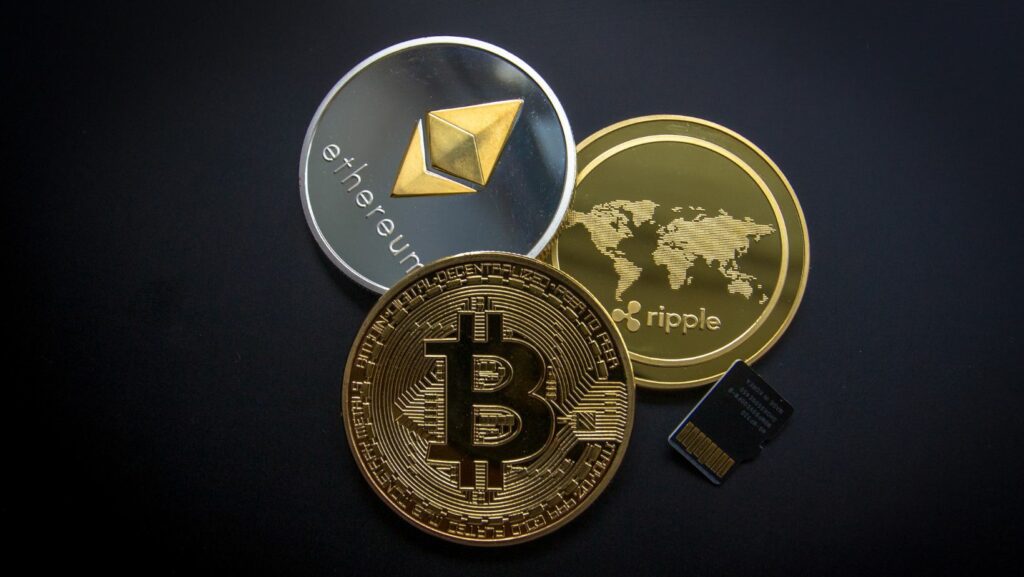”
In the ever-evolving world of finance, few names carry as much weight as JPMorgan Chase. As digital currencies continue to reshape the financial landscape, JPMorgan cryptocurrency is a game-changer that’s capturing everyone’s attention. With its deep-rooted expertise in traditional banking, the firm’s move into the crypto space marks a significant shift in how established financial institutions are adapting to new technologies.
I’ve always been fascinated by how legacy banks like JPMorgan are navigating the complexities of blockchain and digital assets. Their initiative not only legitimizes cryptocurrencies in the eyes of skeptics but also sets a precedent for other financial giants. As we delve into JPMorgan cryptocurrency strategy, it’s clear this isn’t just a fleeting trend—it’s a strategic evolution that could redefine the future of finance.
Key Takeaways
- Pioneering Blockchain Initiatives: JPMorgan Chase is leading the financial sector’s integration of cryptocurrency with projects like JPM Coin and digital currency platforms such as Onyx, showcasing their commitment to blockchain innovation.
- JPM Coin Benefits: Designed for institutional transactions, JPM Coin enhances transaction efficiency, liquidity management, and cross-border payments by offering secure, instant settlements on a blockchain network.
- Strategic Partnerships: Collaborations with firms like ConsenSys allow JPMorgan to leverage external expertise and accelerate blockchain technology adoption, further strengthening their position in digital finance.
- Impact on Traditional Banking: JPMorgan’s cryptocurrency initiatives offer competitive advantages by reducing transaction costs, increasing speed, and proposing new ways for cash management, setting a precedent for other financial institutions.
- Regulatory Challenges: Despite advancements, JPMorgan navigates regulatory scrutiny and technological challenges, emphasizing the need for ongoing adaptation in securely managing digital assets.
- Comparative Industry Leadership: Compared to peers like Goldman Sachs and Citigroup, JPMorgan stands out through its proactive deployment of blockchain solutions like JPM Coin, marking a significant evolution in institutional finance.
JPMorgan Cryptocurrency
JPMorgan Chase has embraced cryptocurrency through various innovative initiatives. One key project is its digital coin, JPM Coin, launched in 2019. It’s used internally for instant settlement of transactions between institutional clients. JPM Coin showcases how blockchain technology can enhance efficiency in payment processes.
The bank also launched Onyx, a business unit dedicated to blockchain and digital currency development. With Onyx, JPMorgan explores how decentralized finance could transform traditional banking, offering new opportunities for financial innovation.
In 2021, JPMorgan cryptocurrency set up a dedicated blockchain team within its corporate investment bank. This team focuses on building products and services that integrate blockchain with traditional banking solutions. By leveraging blockchain’s potential, JPMorgan aims to streamline banking processes and reduce operational costs.
Partnerships play a crucial role in JPMorgan’s strategy. The bank has collaborated with major firms like ConsenSys to develop blockchain platforms. Such alliances enable JPMorgan to harness external expertise and accelerate blockchain adoption.
JPMorgan further solidified its cryptocurrency presence in August 2021 by providing crypto funds to clients. Affluent clients can now access a range of cryptocurrency investments, reflecting the growing demand for digital assets within the bank’s wealth management sector.
JPM Coin: An In-depth Look
JPM Coin represents JPMorgan Chase’s foray into digital currency, designed specifically for transferring value within the bank’s network. By facilitating transactions between institutional clients, it streamlines the settlement process.
How JPM Coin Works
JPM Coin operates on a permissioned blockchain, ensuring transactions are secure and only accessible to authorized members within JPMorgan’s network. Each coin’s value pegs to the US dollar, maintaining stability and enabling instant settlements. When clients deposit funds in the bank, they receive equivalent JPM Coins for executing transactions efficiently. Upon completion, the digital coins convert back to the original currency in the client’s account.
Use Cases and Applications
JPM Coin primarily serves large institutional clients needing quick, secure transactions. It improves liquidity management by enabling real-time fund transfers across different markets and time zones. With its ability to streamline cross-border payments, JPM Coin offers potential cost savings compared to traditional transaction methods. This tool also supports corporate treasury services, helping firms manage internal cash flows with minimal delay.
JPMorgan’s Blockchain Technology
JPMorgan’s blockchain technology illustrates its innovative approach within the cryptocurrency sphere by leveraging cutting-edge solutions like Quorum and forging strategic partnerships.
The Development of Quorum
Quorum represents JPMorgan’s foray into enterprise-level blockchain technologies. It’s an open-source platform designed specifically for financial services, functioning as a fork of Ethereum. By enhancing privacy and performance, Quorum caters to the unique needs of institutional clients. I discovered that Quorum’s architecture supports private transactions, creating a secure environment for confidential client dealings. In 2020, ConsenSys acquired Quorum, yet the partnership continues, integrating ConsenSys’ advancements with Quorum’s foundation.
Collaborations and Partnerships
Collaborations with industry leaders bolster JPMorgan cryptocurrency blockchain efforts. Strategic alliances, such as with ConsenSys, enable the bank to synergize blockchain solutions. Furthermore, teaming up with organizations like the Interbank Information Network (IIN) taps into global banking networks, promoting efficiency in financial transactions. These partnerships align with JPMorgan’s commitment to innovation in blockchain by pooling expertise from different sectors.
Impact on the Financial Industry
JPMorgan’s cryptocurrency initiatives significantly influence the financial industry by integrating blockchain technology into banking. These efforts promote efficiency and innovation.
Benefits for JPMorgan and Its Clients
JPMorgan benefits from increased transaction speed and cost savings through its digital currency solutions. JPM Coin enables instant settlement, improving liquidity and cash management for institutional clients. Enhanced security through a permissioned blockchain offers clients confidence in transactional integrity. By leveraging blockchain, JPMorgan reduces costs and processes payments more efficiently, positioning itself as a leader in digital finance.
Challenges and Concerns
Despite advantages, JPMorgan faces challenges like regulatory scrutiny in the cryptocurrency space. Ensuring compliance while exploring blockchain innovations presents a significant challenge. Security threats and technological glitches are concerns when dealing with digital assets. Additionally, market volatility in crypto value can impact client confidence. Mitigating these issues requires continuous adaptation and investment in robust security measures.
Comparison with Other Financial Institutions
JPMorgan Chase’s foray into cryptocurrency is significantly more developed compared to other financial institutions. While banks like Goldman Sachs and Bank of America have explored blockchain technology, JPMorgan’s implementation of a digital coin, JPM Coin, underscores its unique approach. Most banks only focus on theoretical applications or investment advice for clients. In contrast, JPMorgan actively incorporates blockchain integration across its services.
Goldman Sachs entered the crypto space offering trading services and exploring ETFs. It hasn’t developed its own digital currency, making JPMorgan’s efforts distinct. Furthermore, JPMorgan’s commitment is evidenced by the establishment of Onyx and specialized blockchain teams, illustrating a strategic investment in blockchain innovation beyond typical market-based operations seen at other banks.
Citigroup and Bank of America have initiated blockchain projects to enhance transaction efficiency. However, their scope remains limited to pilot programs and research studies. In comparison, JPMorgan’s practical applications like JPM Coin for instant settlement and its partnerships with firms like ConsenSys highlight their proactive role in digital finance transformation.
By creating and deploying its digital currency, JPMorgan advances a comprehensive model unreplicated by peers. Bank of America’s patents in blockchain suggest potential future innovations, yet they lack the immediate, tangible outputs present in JPMorgan’s current service offerings. Overall, JPMorgan’s strategic embrace of cryptocurrency sets a high bar for other financial institutions aiming to integrate digital assets and blockchain technologies.
JPMorgan Cryptocurrency: Paving the Way for Future Developments in Digital Finance.
JPMorgan’s strategic dive into cryptocurrency marks a pivotal shift in the financial landscape. By leveraging its traditional banking expertise, the bank is not only legitimizing digital assets but also setting a benchmark for others in the industry. Through initiatives like JPM Coin and the establishment of Onyx, JPMorgan is demonstrating a commitment to integrating blockchain technology into its operations. This approach not only enhances efficiency but also showcases the bank’s dedication to innovation. As the financial world continues to evolve, JPMorgan’s proactive stance in the crypto space positions it as a leader, paving the way for future developments in digital finance.
“





